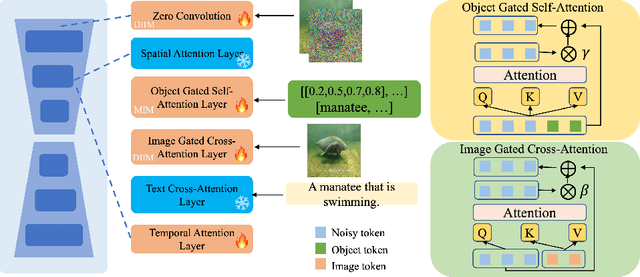Animate Your Motion: Turning Still Images into Dynamic Videos
Paper and Code
Mar 15, 2024



In recent years, diffusion models have made remarkable strides in text-to-video generation, sparking a quest for enhanced control over video outputs to more accurately reflect user intentions. Traditional efforts predominantly focus on employing either semantic cues, like images or depth maps, or motion-based conditions, like moving sketches or object bounding boxes. Semantic inputs offer a rich scene context but lack detailed motion specificity; conversely, motion inputs provide precise trajectory information but miss the broader semantic narrative. For the first time, we integrate both semantic and motion cues within a diffusion model for video generation, as demonstrated in Fig 1. To this end, we introduce the Scene and Motion Conditional Diffusion (SMCD), a novel methodology for managing multimodal inputs. It incorporates a recognized motion conditioning module and investigates various approaches to integrate scene conditions, promoting synergy between different modalities. For model training, we separate the conditions for the two modalities, introducing a two-stage training pipeline. Experimental results demonstrate that our design significantly enhances video quality, motion precision, and semantic coherence.
 Add to Chrome
Add to Chrome Add to Firefox
Add to Firefox Add to Edge
Add to Edge